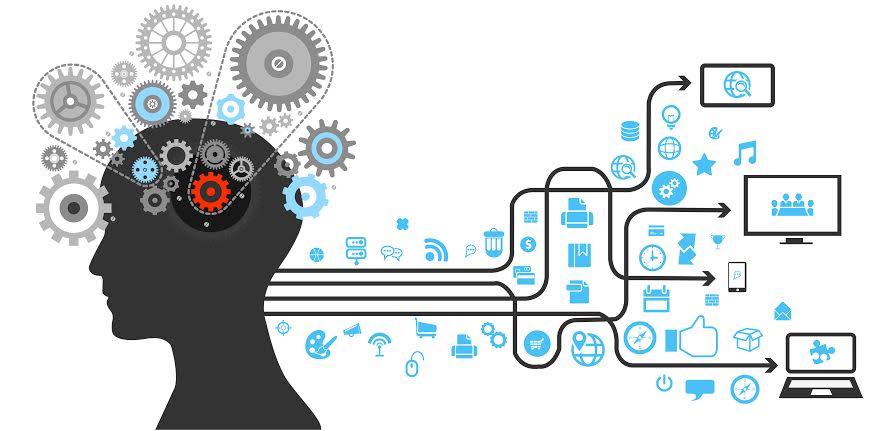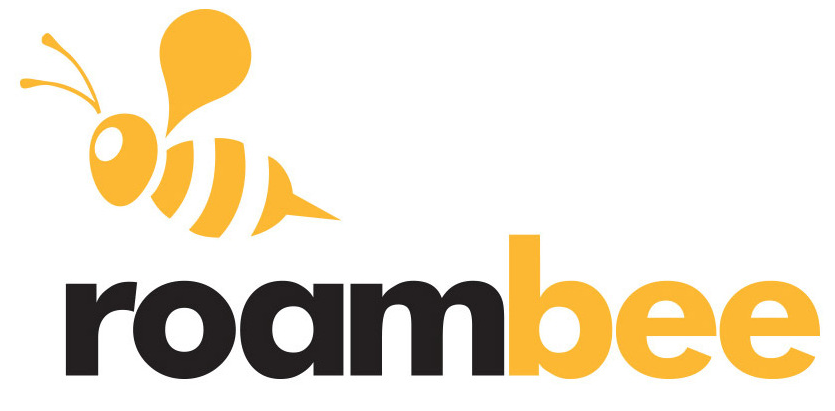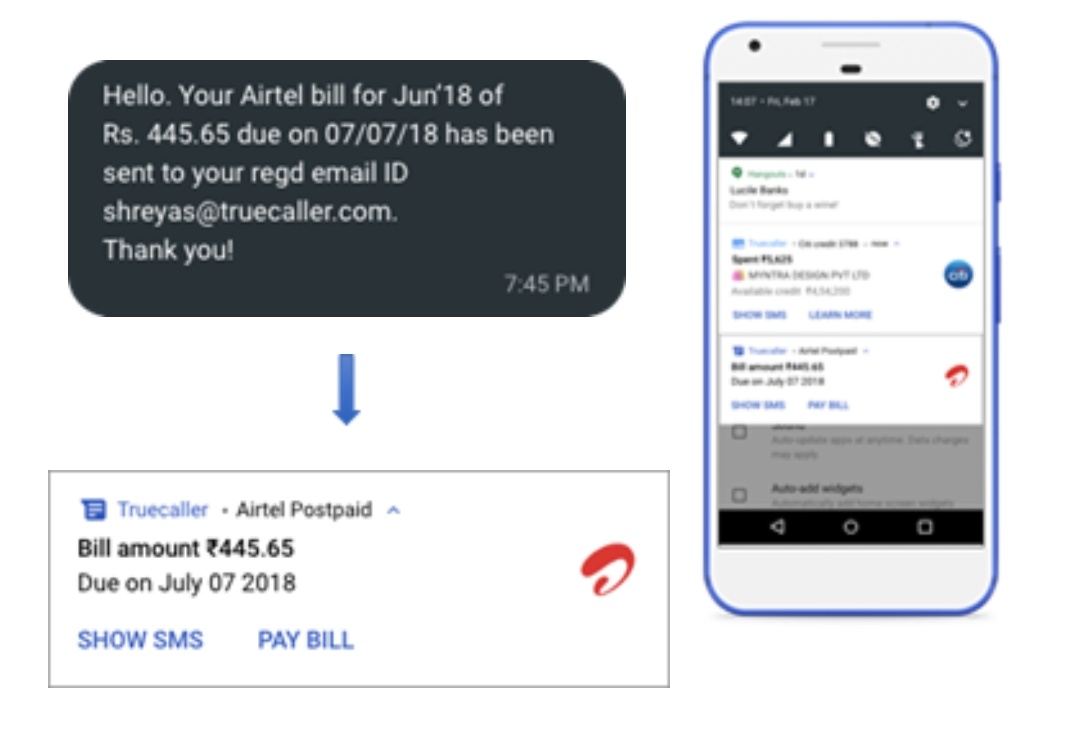Microsoft India showcased progress on its vision to democratize AI in the country to fuel economic and social growth. As part of its mission to empower every organization and individual, Microsoft is working with stakeholders across public and private sectors, civil society and academia in the country to create the right conditions for human-centered AI.

Anant Maheshwari, President, Microsoft India, said
The next wave of innovation for India is being driven by the tech intensity of companies – how you combine rapid adoption of cutting edge tech with your company’s own distinctive tech and business capabilities. We believe AI will enable Indian businesses and more for India’s progress, especially in education, skilling, healthcare and agriculture. Microsoft also believes that it is imperative to build higher awareness and capabilities on security, privacy, trust and accountability. The power of AI is just beginning to be realized and can be a game-changer for India.
The four pillars of Microsoft’s AI strategy include
Enabling Digital Transformation
Microsoft is committed to use its Cloud and AI technologies to create breakthrough innovations and accelerate the digital transformation of the nation, focusing on core industries that are critical to economic growth.
- Over 700 business and government organizations have adopted its Artificial Intelligence [AI] solutions to drive breakthroughs in their digital transformation. Over 60% of these AI customers come from large businesses in manufacturing, financial services. In addition, Microsoft is working with new-age organizations that are leapfrogging and disrupting industries.
- 715 partners are working with Microsoft in India to help customers design and implement a comprehensive AI strategy, aimed to boost employee productivity, increase business agility, improve customer engagement and jumpstart new product innovation.
Building coalitions for responsible innovation
Microsoft works with government, industry, academic and civil society stakeholders to create a collective approach to AI and build solutions that meets the needs and expectations of citizens. Microsoft India is partnering with NITI Aayog to combine the cloud, AI, research and its vertical expertise for new initiatives and solutions across several core areas including agriculture and healthcare and the environment. We are also an active participant along with CII in looking at building solution frameworks for application in AI across areas such as Education, skills, health and agriculture.
Bridging the skills gap and enhancing employability
Microsoft believes development of talent pipelines vital for economic growth and is working to empower individuals across all demographics with the skills needed to succeed in an AI enabled world. In India, Microsoft aims to skill over 10,000 developers; set up AI labs in 10 universities; and train 500,000 youth across the country over the next three years. Microsoft also recently announced the Intelligent Cloud Hub Program to equip research and higher education institutions with AI infrastructure, build curriculum and help both faculty and students to build their skills and expertise in cloud computing, data sciences, AI and IoT.
Creating sustained social impact
Microsoft is enabling public and private organizations to apply Microsoft AI technologies to address pressing societal challenges. This includes healthcare, education, agriculture, local language computing environmental sustainability, accessibility opportunities, and supporting humanitarian action. 2018 saw Microsoft roll out several new projects across healthcare, including a partnership with Apollo Hospitals to use AI for early detection of cardiac diseases. SRL Diagnostics is applying Microsoft AI for more accurate diagnosis in digital pathology and early detection of diseases such as cancer.
Microsoft customers and partners driving AI innovation for transformation in India
Engaging customers with AI
Future Generali India Life Insurance – Future Generali has built a AI based chatbot, REVA, for its life insurance business on the company’s website. REVA addresses two business requirements viz., customer service and new customer acquisition and onboarding. Through a one-click service, existing customers can get policy status, premium due date, renewal payments, request for a soft copy of unit statement, premium paid certificate, fund charges among others. On the other hand, REVA also enables anytime, anywhere access to customers, enabling new customer on-boarding through a guided sales process that recommends the right products and also generates quotes.
REVA enables zero human intervention for certain products including Cancer Protect Plan and Heart & Health Insurance Plan. Moreover, it facilitates faster policy issuance and real-time resolution of policy queries. REVA has helped improve customer satisfaction scores by 91%, promoter customers by 70% and renewal premiums by 50%.
Empowering employees
UST Global – UST Global has been using an automated BOT framework to empower its employees to gain access to the information they require, without having to make countless calls and be able to make transactions from one single interface. This framework is available for all UST employees across web, mobile and Facebook at Work. So far, it has completed 6 million transactions and services 10,000 unique users every week. The company has also seen a 30% reduction in support ticket count.
Transforming products
Spetkacom Power Bat – The Power Bat, introduced in partnership with Anil Kumble’s technology start-up Spektacom Technologies and Star India, provides cricket players and coaches a new way to engage with the sport and help improve their game. A lightweight Azure Sphere-powered sticker is stuck on the shoulder of the bat. During a live match, as soon as the batsman hits the ball, data on different parameters [speed on impact, twist on impact and quality of the shot etc.] are captured in a new unit of measurement titled Power Speks.
Microsoft’s Azure Sphere ensures that the data is securely captured and processed. Using advanced analytics and AI services on Azure, real-time insights are captured through the stump box and displayed via the broadcaster. During practice or coaching, the same data can be viewed through a mobile app to help players and coaches learn from the shots and enhance their game.
Optimizing operations
Talview – Talview’s automated video interviewing solution helps customers hire from the untapped talent pool from multiple cities across the country. It has saved a customer upwards of 9000 hours of time for a customer in identifying, sourcing and screening talent. The solution is built on Azure Cognitive services to identify behavioral insights for hiring the right candidates. It can be accessed by candidates from any smartphone device and is fully functional even on low speed Internet.








